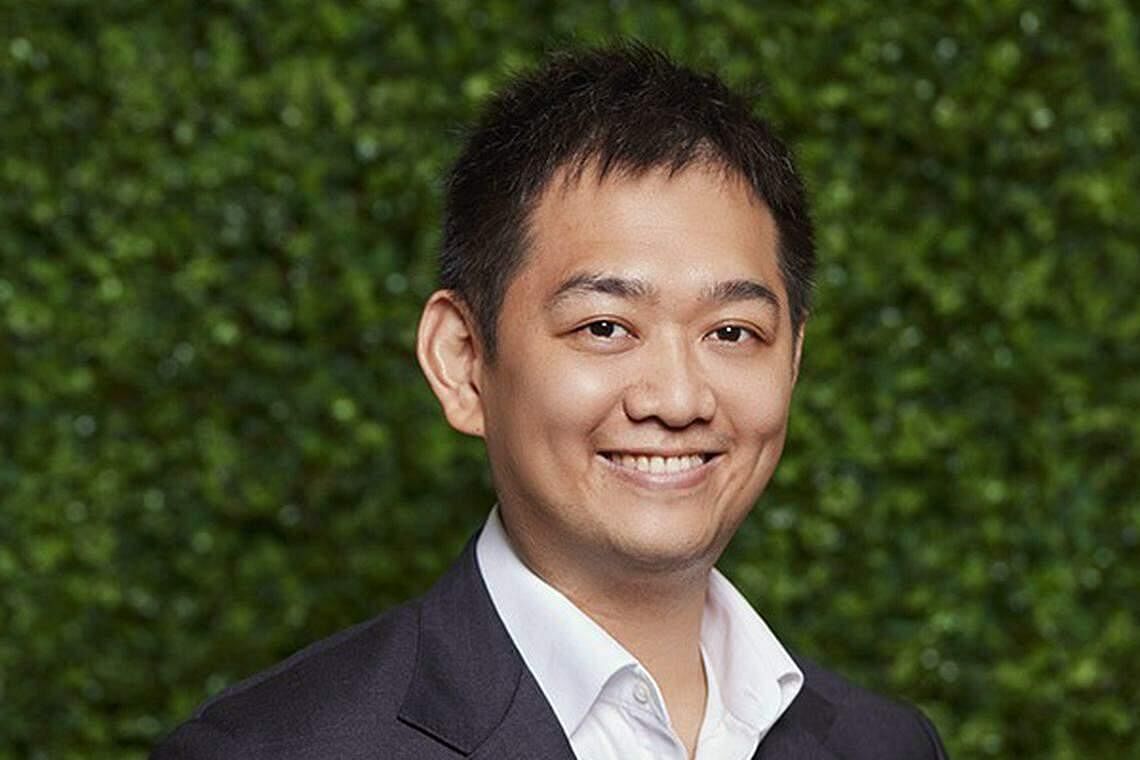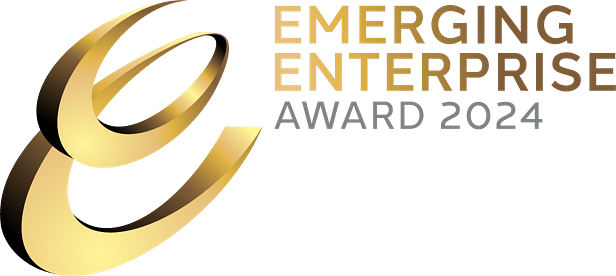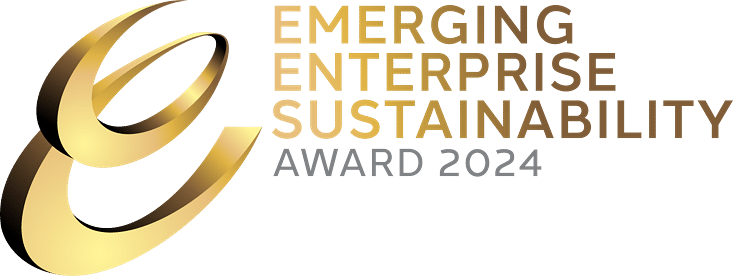ROUNDTABLE PANELLISTS:
- Justin Chou, chief executive officer (CEO), Growthwell Group [Singapore]
- Ricky Fang, founder and CEO, Zero Waste Solution [Singapore]
- Sean Tan, founder and CEO, Insect Feed Technologies [Singapore]
- Seah Liang Chiang, founder and CEO, Tiny Pod [Singapore]
- Thomas Lim, founder and CEO, Global Enviro Holding [Singapore]
Moderated by Paige Lim, Journalist, The Business Times
As a finalist for this year’s Emerging Enterprise Sustainability Award, what is your company’s role in the sustainability scene?
Ricky Fang: Zero Waste Solution designs solutions that convert food waste into useful resources, in a process known as valorisation.
We divert about 80 tonnes of food waste daily – about 5 per cent of Singapore’s national average – effectively reducing the volume of ashes generated from incineration by eight tonnes per day. This has also reduced greenhouse gases due to lower haulage frequencies, as well as incineration emissions.
Sean Tan: The primary mission of Insect Feed Technologies is to replace traditional animal feed sources, such as soy and fishmeal, with sustainable insect protein.
We go a step further by using specialised processing techniques to enhance the nutritional profile of our insect protein. This creates an end-product that is not only environmentally friendly, but also nutritional for animals and pets. Our approach is a comprehensive circular solution to sustainability challenges in the food supply chain.
Justin Chou: Growthwell Group is a plant-nutrition company. We focus on creating plant-based seafood that mimics the sensory experience and nutritional profile of conventional seafood, as well as achieving price parity with these equivalents.
We offer a sustainable solution to reduce the demand for overexploited fish stocks and lessen the impact on our oceans.
Thomas Lim: Global Enviro Holding’s patented plasma pyrolysis technology allows end-of-life waste tyres to be recycled in a sustainable manner. This prevents waste tyres from being converted into tyre-derived fuel in incineration plants, a process that emits harmful toxic substances into the environment.
When our plant is fully operational in the second quarter of 2024, it will have the capacity to treat almost 100 per cent of Singapore’s waste tyres.
Seah Liang Chiang: To minimise environmental impact and foster social responsibility, Tiny Pod uses recyclable shipping containers and metal structures to build hotels. We can move our hotels around Singapore and reinstate the hotel site while minimising waste.
Our Garden Pod has solar panels that provide 80 per cent of our power. Guests are urged to recycle with separate waste bins, and we recycle bottles and cans.

How has technology allowed you to pursue sustainability?
Tan: While insect farming may seem straightforward on a small scale, industrial-level production presents unique challenges. That’s where technology becomes invaluable. Advanced manufacturing technologies – including robotics, IoT sensors, and engineered systems – allow us to scale up production efficiently and sustainably.
Additionally, our deep understanding of microbial ecosystems enables us to turn agricultural waste – such as palm oil by-products – into a viable feedstock for our insects. By utilising these technologies, we can optimise resource use as well as make insect-based feeds more affordable and scalable.
Chou: One of our subsidiaries has developed a chickpea protein isolate with a protein purity of more than 90 per cent. Chickpeas are known for being a “complete” plant protein, as they are high in fibre and minerals. This makes them a valuable ingredient for our plant-based dairy products, and we subsequently created the world’s first chickpea barista milk.
Furthermore, chickpeas have a relatively low water footprint compared to other crops and can contribute to soil health through nitrogen-fixing. We have patented the extraction technology to protect our innovations.
Fang: Our heavy reliance on devices such as programmable logic controllers, human-machine interfaces, radio-frequency identification and the Internet of Things (IoT) is pivotal to our success. These technologies have contributed immensely to the efficacy of our solutions, high participation rate, as well as data generation and analysis.
Sustainability is meaningless if solutions are resource guzzlers or white elephants, or if we are unable to generate meaningful data.

Seah: We have installed room energy management systems that automatically power down when guests leave. Our cloud-based property management system enables digital check-ins and check-outs; this reduces paper waste from registration cards and receipts, supporting our paperless operations. Finally, an IoT-based water monitoring system helps to detect water leakages in our Garden Pod.
Lim: Our plasma pyrolysis technology was developed for sustainability. It pulverises waste tyres to produce recovered carbon black, a sustainable raw material that can be used to make new tyres.
Tyre manufacturers are under pressure to use such alternative raw materials to reduce their carbon footprint. This is because the production of traditional carbon black is environmentally unfriendly, involving the combustion of petroleum or coal oil, with methane or heavy aromatic oils used as feedstock.
The plasma pyrolysis process generates another substance, syngas. Syngas provides us with sufficient power to run our operations without the need for external energy, along with the possibility of connecting excess power to the grid.
How do you involve other stakeholders in your sustainability journey?
Tan: We have formed alliances with the Agency for Science, Technology and Research and the Singapore Food Agency, among others, to advance research and standardise practices in the nascent insect industry. These partnerships aim to maximise production while maintaining sustainability.
Simultaneously, we engage directly with potential customers across diverse sectors – from shrimp and poultry farming, to pet nutrition – to co-develop value-added products that meet industry-specific needs.
We also work closely with agricultural stakeholders and international regulatory bodies to ensure our products are scalable and globally compliant.

Seah: Our hotels provide a platform for local sustainability companies to display their sustainable products. For instance, startup Soil Social produces high-quality compost using local waste. They endeavour to use compost to increase carbon sequestration in the ground and close the resource loop.
We give all our glass waste to upcycling business Soda Lemon, which turns it into drinking glasses and flower vases. We also work with The Plastic Project, a company that conducts environmental education courses by recycling plastic waste.
Lim: With the emphasis on sustainability and implementation of international standards, large organisations and small and medium-sized enterprises are concerned about waste tyre generation. We offer solutions to these businesses to account for and manage their Scope 1 and Scope 3 carbon emissions.
One good example is the Singapore Motor Tyre Dealers Association. Even without regulatory requirements, they are collaborating with us to implement sustainability practices among their members.

What are some key trends or shifts in your industry, and what opportunities have these created?
Chou: Food safety concerns and health-conscious consumer trends are driving demand for plant-based seafood, which is not contaminated by microplastics or radioactive waste in the oceans; as well as plant-based milk, which has fewer calories, lower cholesterol and is lactose-free.
We are well-positioned to meet this demand and contribute to a more sustainable and eco-friendly food industry.
Fang: Previously, linear approaches such as incineration, landfills and on-site digestion were used to get rid of food waste. But the 2030 Agenda for Sustainable Development, which came into force in 2015, and subsequent United Nations Climate Change conferences have brought about a paradigm shift: from the termination of food waste, to valorisation.
The Singapore government’s construction of a biogas facility, black soldier fly startups upcycling food waste, and other forms of innovative upstream recycling all point to off-site food waste valorisation. We thus see the gap in improving the efficacy of the food waste movement to better serve such purposes.
Tan: While the global emphasis on sustainability is driving a shift towards alternative proteins such as insect-based feed, the focus has often been on low-cost, high-volume production. This approach has resulted in many companies struggling with profitability.
In contrast, we identify a growing trend towards high-value, sustainable insect protein, particularly in the pet food industry.
Once the issues related to commercial production are solved, we believe the focus should be on formulating pet foods with insect-based functional ingredients. This will create additional value and allow us to diversify our product offerings.
Seah: The top key trend in hospitality is sustainability and eco-friendly practices. Apart from contributing to Singapore’s environmental, social and governance (ESG) goals, we hope to attract eco-conscious guests.
Sustainability initiatives, such as eco-friendly certifications and practices, will attract eco-conscious travellers. This can lead to higher occupancy rates and premium pricing for sustainable accommodations.
Another opportunity lies in cost savings. By implementing an energy management system and solar panels, we can lower our operating costs.

What regional opportunities do you see?
Chou: Alternative seafood is still a relatively new category, and could have a larger addressable market than beef in the medium to long term. The global plant-based seafood sector is expected to grow significantly in the next 10 years, presenting an opportunity for us to venture into Europe.
There are also new opportunities for us to enter China and South-east Asia with our newly-launched chickpea plant-based milk.
Fang: We see demand coming from populated urban cities and suburban areas with high per-capita food waste. However, for these opportunities to bear fruit, their governments must have the political will and muscle to mandate and enforce waste segregation at the source for effective downstream recycling.
Separately, many global entities and financing bodies have introduced net-zero policies. This has created demand for effective food waste solutions in the countries where they operate or invest in.
Tan: Singapore serves as our innovation nucleus for deep-tech research, product development, and the establishment of industry standards through local collaborations. For production, we are targeting overseas markets where abundant agricultural waste streams offer untapped opportunities.
Our proprietary technologies enable us to efficiently convert these waste materials into sustainable insect feed, filling a gap where other companies have stumbled.
Seah: Our business model is unique. We see ourselves as enabling land owners around the world to participate in owning and running a sustainable hotel. To achieve this, we plan to franchise our hotels globally – by building container hotels in Singapore, and then exporting these hotels to our franchisees.
Lim: We have the ambition to expand globally beyond the region. Every year, 1.6 billion new tyres are produced globally and one billion waste tyres are generated. The recycling industry processes only 100 million tyres annually.
For years, the industry has been making the circular and environmental treatment of waste tyres a priority, as end-of-life tyres become a major global waste problem. However, the problem still persists, and we intend to resolve this in a sustainable and economical way with our technology.






